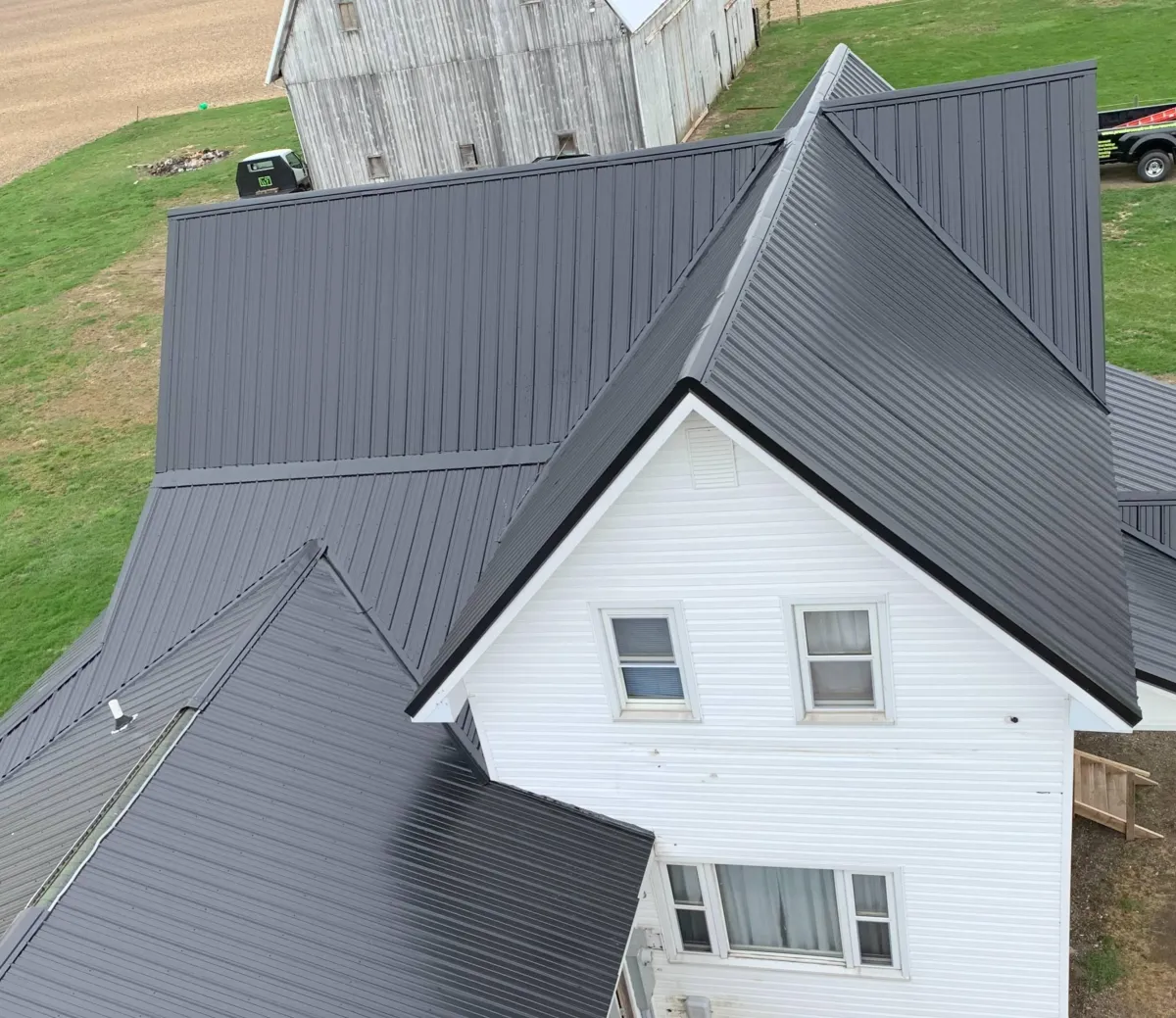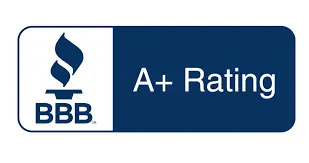SERVING FORT WAYNE AND SURROUNDING AREA

News & Insights

Tips to Keep Your Metal Roof in Top Condition

1. The Benefits of Opting for a Metal Roof
When considering roofing options, metal roofing stands out for various reasons. Its durability is unmatched, providing long-term protection against the elements. Metal roofs are also environmentally friendly, as they can often be recycled at the end of their lifespan. Additionally, metal roofing is energy efficient, reflecting sunlight and reducing cooling costs in your home. With a diverse range of styles and colors available, metal roofs can enhance the curb appeal of any property.
Furthermore, metal roofs are lightweight, putting less stress on the structure of your home compared to heavier roofing materials. This can lead to cost savings on the overall construction or reinforcement of the building. In regions prone to extreme weather conditions, such as heavy snow or high winds, metal roofing offers superior resistance and can withstand harsh climates with minimal maintenance. Opting for a metal roof is not just a practical choice but also a stylish and eco-friendly one.
2. Understanding Different Types of Metal Roofing Materials
There is a range of metal roofing materials to choose from, each with its unique characteristics. Steel roofing is popular for its strength and affordability, making it a common choice for residential properties. Aluminum roofing is lightweight and resistant to corrosion, ideal for coastal areas or regions with high humidity. Copper roofing, known for its distinctive appearance and longevity, adds a touch of elegance to any home.
Additionally, zinc roofing offers excellent durability and develops a protective patina over time, giving it a modern and weathered look. Understanding the differences between these materials is crucial when selecting the best option for your specific needs. Whether you prioritize longevity, aesthetics, or cost-effectiveness, there is a metal roofing material that aligns with your preferences and requirements.
Each type of metal roofing material requires slightly different maintenance approaches to ensure its longevity. By familiarizing yourself with the unique characteristics of steel, aluminum, copper, and zinc roofing, you can make informed decisions on how to care for your roof properly. Knowing the specific requirements of your chosen material will help you keep your metal roof in excellent condition for years to come.
3. Inspecting Your Metal Roof for Damage
Regular inspections are key to identifying any issues with your metal roof promptly. Begin by visually examining the roof for signs of wear and tear, such as discolored patches, rust spots, or loose screws. Walk around the perimeter of your property to check for any loose or damaged metal panels. Inspecting your roof after severe weather events can help you catch any damage early and prevent it from escalating.
If you notice any concerns during your visual inspection, it's essential to address them promptly. Small issues like loose screws or minor dents can typically be fixed with simple repairs. However, if you discover more significant damage, such as widespread corrosion or large sections of metal that are compromised, contacting a professional roofer for assistance is advisable. Regular inspections play a crucial role in maintaining the structural integrity of your metal roof.
4. Cleaning and Maintaining Your Metal Roof Regularly
Cleaning your metal roof on a regular basis helps prevent the buildup of dirt, debris, and organic materials that can cause damage over time. Begin by removing any leaves, branches, or other debris that may have accumulated on the roof surface. Using a soft-bristle brush or a leaf blower can help you clear these obstructions without causing scratches or dents on the metal panels.
Once the roof is clear of debris, you can proceed to wash it with a mild detergent and water solution. Avoid using harsh chemicals or abrasive cleaning tools, as they can damage the finish of the metal. Rinse the roof thoroughly with clean water to ensure all traces of detergent are removed. Performing regular cleaning and maintenance tasks will not only keep your metal roof looking its best but also extend its lifespan significantly.
In addition to cleaning, it's important to look out for any signs of rust or corrosion during your maintenance routines. Addressing these issues promptly can prevent them from spreading and causing more extensive damage to your roof. By incorporating regular cleaning and maintenance into your routine, you can preserve the beauty and functionality of your metal roof for years to come.
5. Addressing Rust and Corrosion Issues Early
Rust and corrosion are common concerns with metal roofs, especially in areas exposed to moisture or saltwater. Regular inspections are crucial in detecting early signs of rust, such as orange or brown discoloration on the metal surface. If you spot any areas affected by rust, it's essential to address them promptly to prevent the corrosion from spreading further.
To address minor rust spots, you can use a wire brush to remove the rust and then apply a rust-inhibiting primer to prevent future corrosion. For more severe rust issues, contacting a professional roofer to assess the damage and recommend the appropriate repair solutions is advisable. By taking proactive steps to address rust and corrosion early on, you can prolong the lifespan of your metal roof and maintain its structural integrity.
6. DIY Metal Roof Repair Tips You Can Do Yourself
While some metal roof repairs may require professional expertise, there are several tasks you can tackle yourself to keep your roof in good condition. For small leaks or minor damage, sealing them with a waterproof sealant can provide a temporary solution until you can schedule professional repairs. Inspecting and replacing damaged or missing screws on your roof can prevent water infiltration and secure the metal panels in place.
If you notice dents or punctures on your metal roof, you can use a rubber mallet to carefully flatten the affected areas and restore the surface. Regularly checking the sealant around roof penetrations, such as vents and chimneys, can help identify areas that may be susceptible to leaks. By addressing minor repairs promptly and maintaining the integrity of your roof, you can avoid more significant issues down the line.
7. Hiring Professional Help for Complex Metal Roof Problems
For complex metal roof problems or issues beyond your skill level, seeking professional help is crucial. Professional roofers have the expertise, tools, and experience to handle complex repairs, replacements, or upgrades efficiently. Whether you're dealing with extensive rust and corrosion, structural damage, or intricate roofing designs, hiring a skilled roofer ensures the job is done correctly and safely.
When selecting a roofing professional, be sure to research their credentials, past work, and customer reviews to ensure you're hiring a reputable contractor. Requesting multiple quotes and comparing services can help you find the best fit for your specific needs and budget. By entrusting complex metal roof problems to qualified professionals, you can rest assured that your roof will be in top condition for years to come.
8. Utilizing Protective Coatings to Extend Your Roof's Lifespan
Applying protective coatings to your metal roof is an effective way to enhance its durability and longevity. These coatings act as a barrier against UV rays, moisture, and other environmental factors that can cause damage to the metal surface. By choosing the right coating based on your climate and specific roof needs, you can significantly extend the lifespan of your metal roof and reduce maintenance requirements.
Before applying a protective coating, ensure that your roof is clean and free of any rust or corrosion. Prep the surface according to the coating manufacturer's instructions to achieve optimal adhesion and coverage. Whether you opt for acrylic, polyurethane, or silicone-based coatings, investing in protective treatments can save you time and money on future repairs while keeping your metal roof in top condition.
9. Tips for Enhancing the Energy Efficiency of Your Metal Roof
Improving the energy efficiency of your home through your metal roof is not only environmentally friendly but can also lead to cost savings on your utility bills. Consider installing reflective coatings or light-colored metal roofing to reduce heat absorption and lower cooling costs during hot months. Additionally, adding insulation under the metal panels can enhance the thermal performance of your roof and improve overall energy efficiency.
Proper ventilation in your attic space allows hot air to escape, preventing heat buildup that can affect the efficiency of your metal roof. Sealing any gaps or leaks in the roof structure can further enhance energy efficiency by maintaining a consistent temperature inside your home. By implementing these energy-saving tips, you can make your metal roof a key contributor to a more sustainable and cost-effective household.
10. Final Thoughts on Maintaining Your Metal Roof Like a Pro
Maintaining a metal roof in top condition requires a combination of regular inspections, cleaning, maintenance, and occasional repairs. By staying proactive and addressing issues promptly, you can prolong the lifespan of your roof and ensure its continued performance. Whether you opt for DIY solutions or professional assistance, taking care of your metal roof will pay off in the long run, keeping your home protected and visually appealing.
Remember that each metal roofing material may have specific care requirements, so it's essential to educate yourself on the maintenance needs of your chosen material. With the right knowledge and a proactive approach, you can enjoy the many benefits of a well-maintained metal roof for years to come. By implementing the tips outlined in this guide, you can confidently maintain your metal roof like a pro and maximize its longevity and functionality.
Keep Your Metal Roof in Top Shape!
Want expert tips to ensure your roof stays strong and durable? Call us today at 260-438-1454 for personalized maintenance advice and to schedule a professional inspection!
Get Your Free Estimate Now and Start Transforming Your Space Today!
